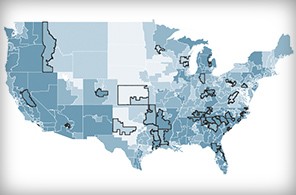At the source of the shutdown, the economy falters — and anger at Barack Obama runs high
< < Go Back
 Tom Hackett’s life in the meat business was nearly gone by 4 p.m. on Thursday. What remained behind yards and yards of polished glass were a few scattered remnants of his final inventory — a couple of flank steaks, some shrimp, a lonely half a pound of bologna.
Tom Hackett’s life in the meat business was nearly gone by 4 p.m. on Thursday. What remained behind yards and yards of polished glass were a few scattered remnants of his final inventory — a couple of flank steaks, some shrimp, a lonely half a pound of bologna.
Hackett stood behind the case and lamented that in a few hours he would be closing the store he has run for five years. The weak local economy killed it, he said, and so did the new chain grocery store down the street and the bank that said it couldn’t lend to him anymore. But the biggest culprit, he said, was a man in Washington whose name Hackett could not bring himself to speak.
“I’m going to go hide for two years,” he said, until “he” — President Obama — is on his way out. “It’s sad. People are hurting. There’s no reason for it to be happening, other than what he’s doing.”
If you want to understand the congressional Republicans who have forced confrontations with Obama on the “fiscal cliff,” the government shutdown and the debt ceiling — and whether those lawmakers might feel encouraged to force more confrontations in the future — you need to understand the economic struggles of the Republicans’ home districts.
People in those districts are poorer and more likely to be unemployed than in the nation at large. They have focused their anger about their economic circumstances on Obama, and they want someone, anyone, to make him improve things for them. This is why Hackett praises his congressman, Tom Graves, for voting against the plan to end the budget impasse with Obama that produced the shutdown. “I think he’s great,” he said of Graves. “Somebody’s got to stand up to him.”
On average, the economy in the districts those Republicans represent is significantly worse than it is in the nation at large.
The median income in those districts last year was 7 percent lower than the national median, according to the Census Bureau. The unemployment rate averaged 10 percent. That was almost two percentage points higher than the national rate, and two percentage points higher than the overall rate in the states that contain each district.
More From The Washington Post:



